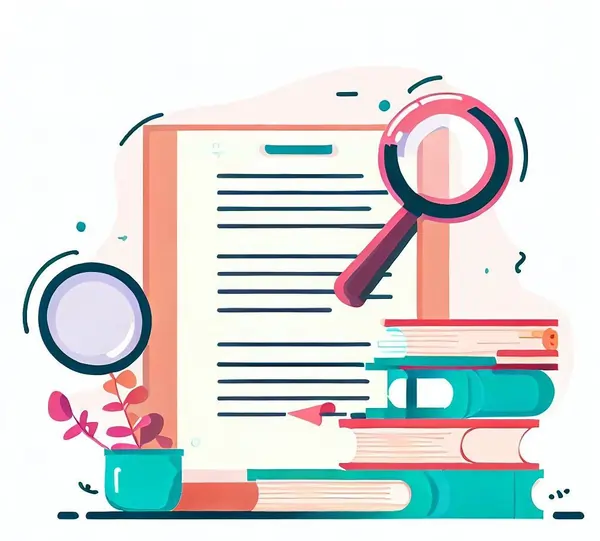In the age of information, where knowledge is readily accessible through the click of a button, it has become crucial to distinguish between credible sources and dubious information, especially when you take your class. For writers, researchers, and students alike, the art of conducting effective research and mastering proper citation methods is paramount. Whether you're a seasoned academician, a blogger, or a student working on an assignment, honing these skills will not only enhance the quality of your work but also reinforce the integrity and credibility of your ideas. Research serves as the foundation for any well-constructed piece of writing, offering a robust framework on which to build arguments, develop unique insights, and contribute to the existing body of knowledge. A well-researched document not only demonstrates the author's expertise but also enables readers to trust the content being presented.
Conducting effective research involves employing a systematic approach to gather relevant and reliable information, especially when you take your history class. Begin by clearly defining the research objectives and identifying keywords that will aid in your search. Utilize reputable academic databases, peer-reviewed journals, and trustworthy websites to access high-quality data. While the internet offers a vast array of sources, it is essential to critically evaluate each one to ensure accuracy, authority, and relevance. Equally crucial is the skill of properly citing sources used in your work. Proper citation not only gives credit to the original authors but also allows readers to verify the information independently. There are various citation styles like APA, MLA, Chicago, and others, each with its own set of guidelines. Familiarize yourself with the specific requirements of your field or publication and consistently apply them throughout your writing.

Research Techniques for Gathering Reliable Information
Research is a critical and systematic process that plays a vital role in acquiring accurate and trustworthy information. Employing effective research techniques is essential to ensure the reliability of the findings. One crucial approach is utilizing various sources for data collection. This involves gathering information from reputable academic journals, peer-reviewed articles, books, and authoritative websites. By utilizing diverse sources, researchers can cross-reference and verify the information, strengthening the credibility of their research.Another valuable technique is conducting interviews and surveys. Engaging with experts, professionals, or individuals with firsthand experience in the subject matter can provide valuable insights and real-world perspectives. Surveys, on the other hand, allow researchers to gather a large amount of data from a broader audience, providing a well-rounded view of the topic.Furthermore, critically evaluating sources is imperative. Researchers must assess the credibility, objectivity, and relevance of the information before incorporating it into their study. This helps to eliminate bias and inaccuracies, ensuring the reliability of the research.
1. Utilizing Online Databases
Online databases are a treasure trove of academic journals, peer-reviewed articles, and scholarly publications. Platforms like Google Scholar, JSTOR, and PubMed are valuable resources that can provide in-depth and authoritative information on various topics. When using these databases, remember to refine your search queries and critically evaluate the sources you find.
2. Conducting Interviews and Surveys
Primary research can add significant value to your work. Conducting interviews or surveys allows you to gather unique insights and firsthand perspectives from experts or individuals with relevant experiences. Ensure that your questions are well-structured and unbiased to get the most valuable data.
3. Fact-Checking from Multiple Sources
In the era of information overload, fact-checking becomes paramount. Relying on a single source can be risky, as it may contain errors or biases. Cross-referencing information from multiple reputable sources helps verify the accuracy of your findings and strengthens your arguments.
Citing Sources: The Pillar of Ethical Writing
In the realm of academic and professional writing, citing sources serves as a fundamental pillar of ethical practice and scholarly integrity. Beyond being a mere formality, proper citation holds immense significance as it not only acknowledges the intellectual contributions of others but also bolsters the credibility and validity of one's own work. When crafting a well-researched paper or article, it is imperative to adhere to the established citation guidelines to avoid plagiarism and uphold the principles of honesty and fairness.One essential aspect of citing sources correctly is providing accurate and detailed references for all the external material utilized in the composition. Whether it be direct quotes, paraphrased information, or even ideas derived from others, attributing the original source is indispensable. This involves meticulously noting down the author's name, publication date, title, and publication information of the work cited.Another crucial aspect is following the appropriate citation style recommended by the respective academic or publishing institution. Common styles include APA, MLA, Chicago, and Harvard, each with its unique set of rules governing in-text citations, bibliographies, and reference lists. Adhering to the prescribed format not only streamlines the writing process but also facilitates seamless communication of sources to readers and reviewers.
1. Understanding Citation Styles
Various academic disciplines follow specific citation styles, such as APA (American Psychological Association), MLA (Modern Language Association), or Chicago. Each style has its guidelines for citing sources, including in-text citations and reference lists. Familiarize yourself with the appropriate style for your field and adhere to it consistently throughout your work.
2. Acknowledging Intellectual Property
Plagiarism is a severe academic offense that can have severe consequences. Whenever you use someone else's ideas, data, or words, it's crucial to provide proper attribution. This includes direct quotes, paraphrased information, and even ideas that are not common knowledge.
The Perils of Plagiarism and How to Avoid It
Plagiarism, a practice that involves using someone else's work, ideas, or words without proper attribution, can have severe consequences, tarnishing one's reputation and inviting academic or professional penalties. To uphold academic integrity and avoid unintentional plagiarism, several strategies are crucial.Firstly, understanding the concept of plagiarism is essential. Familiarize yourself with what constitutes plagiarism, including direct copying, paraphrasing without acknowledgment, and even self-plagiarism, which involves reusing your own work without permission.
Secondly, always attribute sources properly. When referring to someone else's ideas, research, or words, provide appropriate citations following the required citation style. This includes both in-text citations and a comprehensive bibliography or reference list.Thirdly, time management is crucial. Procrastination often leads to rushed assignments, increasing the likelihood of unintentional plagiarism. By planning your tasks and setting realistic deadlines, you can avoid the temptation to cut corners.Next, take advantage of plagiarism-checking tools available online. Many institutions and writing platforms offer such services to help you identify potential instances of plagiarism in your work before submitting it.
1. Keep Track of Your Sources
As you conduct research, maintain a detailed record of all the sources you come across. This could be in the form of a bibliography, a reference manager tool, or a simple document. This record will help you easily retrieve information later and create accurate citations.
2. Learn to Paraphrase Effectively
Paraphrasing is restating someone else's ideas in your own words. When paraphrasing, ensure that you still capture the essence of the original work while expressing it in a new way. Always cite the original source even when paraphrasing.
Organizing Your Research Findings for a Coherent Paper
Once you have diligently collected all the relevant research findings, the next crucial step is to organize them effectively to craft a coherent and well-structured paper. Proper organization not only enhances the readability of your document but also ensures that your ideas flow logically and cohesively, leaving a lasting impression on your readers.Begin by analyzing your research data and identifying the main themes or key points that emerge from it. Categorize and group similar information together, as this will serve as the foundation of your paper's structure. Create an outline that outlines the main sections or chapters of your document, and assign each theme or key point to its appropriate place in the outline.Within each section, arrange your findings in a logical sequence, ensuring that they lead smoothly from one point to the next. This flow should help readers follow your thought process effortlessly. Utilize subheadings and bullet points to break down complex information and make it more digestible for your audience.
1. Create an Outline
Outlining your paper before you start writing can help you arrange your thoughts logically and ensure a smooth flow of ideas. Divide your main points into subtopics and arrange them in a logical order.By organizing your main points into subtopics and arranging them logically, you'll have a clear roadmap for your writing process. This will not only help you stay focused but also ensure a smooth flow of ideas throughout your paper.
2. Use Visual Tools
Visual aids such as mind maps, flowcharts, or diagrams can be helpful in organizing complex information and relationships between different concepts. These visuals can also serve as a quick reference while writing your paper.These aids can serve as valuable references during the writing process, making it easier to connect ideas and maintain consistency in your arguments.
3. Revise and Edit
Once you have written your paper, revising and editing are crucial steps. Check the coherence of your arguments, the clarity of your writing, and ensure that your citations are accurate and consistent.Check that your arguments are well-supported and that your writing effectively communicates your ideas. Additionally, pay attention to the accuracy and consistency of your citations to maintain academic integrity.
Conclusion: Elevating Your Research and Writing Skills
In conclusion, mastering effective research and writing skills is paramount for both academic and professional success. A solid foundation in research techniques empowers you to gather accurate and reliable information, forming the basis of your work's credibility. Properly acknowledging sources through appropriate citation methods not only avoids plagiarism but also demonstrates respect for the contributions of others, strengthening the authenticity of your own ideas.Organizing your findings in a coherent manner is equally crucial. This ensures that your writing is clear and easily comprehensible to your readers, enhancing the overall impact of your work. By presenting your research in a well-structured and thoughtful manner, you contribute to the advancement of knowledge in your field and inspire others to build upon your findings.Beyond academic conventions, adhering to ethical research and citation practices reflects your dedication to intellectual honesty and the pursuit of truth. Upholding these principles is not only a sign of integrity but also contributes to maintaining the standards of academic and professional discourse. By cultivating these skills, you establish yourself as a responsible and respected writer, leaving a positive and lasting impression on your audience.In conclusion, honing your research and writing skills is a lifelong journey. Embrace the joy of discovery, be open to learning from others, and remain committed to upholding the highest standards of academic and professional integrity.
